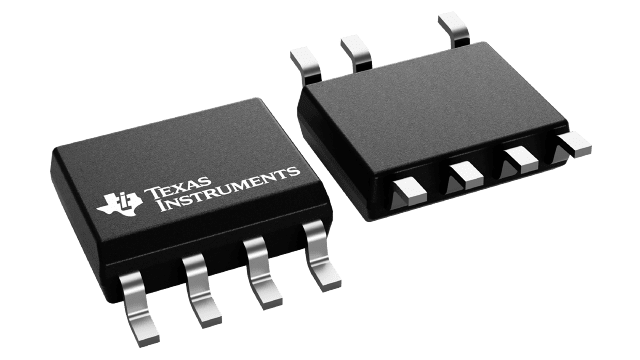
UCC28630D
ActiveHIGH POWER FLYBACK CONTROLLER WITH PSR, PEAK POWER MODE, X-CAP DISCHARGE, AND FREQ DITHER
Deep-Dive with AI
Search across all available documentation for this part.

UCC28630D
ActiveHIGH POWER FLYBACK CONTROLLER WITH PSR, PEAK POWER MODE, X-CAP DISCHARGE, AND FREQ DITHER
Technical Specifications
Parameters and characteristics for this part
| Specification | UCC28630D |
|---|---|
| Duty Cycle | 70 % |
| Fault Protection | Over Temperature, Over Load, Current Limiting, Over Voltage |
| Frequency - Switching [Max] | 120 kHz |
| Frequency - Switching [Min] | 200 Hz |
| Internal Switch(s) | False |
| Mounting Type | Surface Mount |
| Operating Temperature [Max] | 125 ¯C |
| Operating Temperature [Min] | -40 °C |
| Output Isolation | Isolated |
| Package / Case | 8-SOIC |
| Package / Case | 0.154 in |
| Package / Case [custom] | 7 |
| Package / Case [custom] | 3.9 mm |
| Power (Watts) | 30 W |
| Supplier Device Package | 7-SOIC |
| Topology | Flyback |
| Voltage - Start Up | 14.75 V |
| Voltage - Supply (Vcc/Vdd) [Max] | 20 V |
| Voltage - Supply (Vcc/Vdd) [Min] | 8 V |
Pricing
Prices provided here are for design reference only. For realtime values and availability, please visit the distributors directly
| Distributor | Package | Quantity | $ | |
|---|---|---|---|---|
| Digikey | Tube | 1 | $ 2.36 | |
| 10 | $ 2.12 | |||
| 75 | $ 2.00 | |||
| 150 | $ 1.70 | |||
| 300 | $ 1.60 | |||
| 525 | $ 1.40 | |||
| 1050 | $ 1.16 | |||
| 2550 | $ 1.08 | |||
| 5025 | $ 1.04 | |||
| Texas Instruments | TUBE | 1 | $ 1.77 | |
| 100 | $ 1.47 | |||
| 250 | $ 1.05 | |||
| 1000 | $ 0.79 | |||
Description
General part information
UCC28630 Series
The UCC2863x targets high-power, primary-side regulated flyback converters. The ability to operate in both CCM and DCM make the device suitable for applications with a wide power range. The peak power mode allows transient peak power delivery up to 200% of nominal rating, with only a 25% peak current increase, maximizing transformer utilization.
The transformer bias winding is used to sense output voltage for regulation, and for low-loss input voltage sensing. Advanced sampling techniques allow CCM operation, and deliver excellent output voltage regulation performance for opto-coupler-less designs at power levels of 100 W and above.
A high-voltage current source enables fast and efficient start-up. Advanced light-load modes are deployed to reduce both controller and system power consumption at no load and light load. These modes enable potential system designs to meet 30-mW no-load power for power designs up to 30 W nominal, 60 W peak.
Documents
Technical documentation and resources


